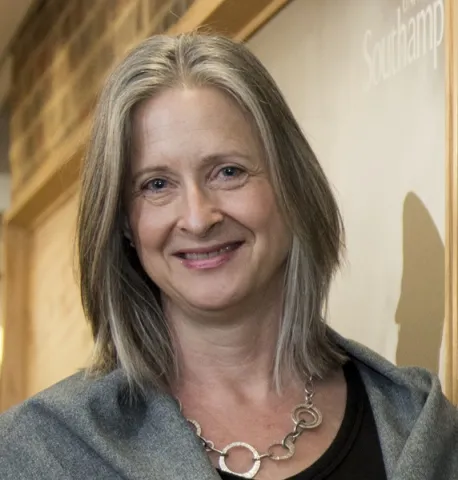Project overview
The project asks how listening to and performing music figured in understandings of home, family and domestic space in Georgian Britain. It seeks both to expand knowledge of the sounding history of Georgian domestic interiors and to explore how to integrate this understanding more fully into heritage interpretations today. It considers the meanings that performers and listeners attributed to music in domestic settings, and explores how emotional or spiritual aspects of musical practice figured in the transformation of houses into homes. It tracks the increasing delineation of domesticity from public life, and investigates how this intersects with historical narratives on the professionalisation of music, on class structures, and on the formulation of family and gender roles. We probe how music traversed geographical and social space, particularly through dance music, oratorio and opera, which linked familial leisure with forms of public entertainment.
This enhanced understanding of domestic musical practice is integrated into our exploration of new models for making domestic music visible and audible for heritage visitors today. Music was an important daily activity for many past residents of historic houses, and evoking this activity can help to people the properties in visitors' imaginations, while at the same time providing a powerful antidote to the static sense that historical settings convey for some audiences. Better knowledge of the role of music in domestic architecture, decoration and social life, and of musical links to artefacts and objects, can provide powerful new interpretive tools and highlight connections between tangible and intangible heritage. Through a series of practice-led interpretation experiments, this project includes case studies for effective interpretation of music in historic houses, and it contributes to further collaborative research on best practice in the field through partnership with heritage sector professionals.
The project includes an ambitious plan of primary research, including consideration of family papers (diaries, correspondence, accounts, inventories); extant music collections identified with specific houses and owners; music produced for domestic consumption, including arrangements of dance, opera and oratorio; historic guidebooks and furniture catalogues; and extant material settings. The historical research underpins scholarly outputs in musicology and dance history, while also providing musical materials for the heritage studies research. In collaboration with the British Library, the research team conducted a census of musical materials in UK historic houses, substantially enhancing existing research tools while providing the first overview of the material traces of domestic music available for use in heritage interpretation today: results are accessible through the CECILIA database (http://www.cecilia-uk.org/). A case study on dance will generate new understandings of how this key social activity was deployed in the home, and has resulted in new recordings of dance music for use by historic dance companies and within the heritage sector. With project partners The National Trust, we constructed a case study at Erddig, providing a detailed history of music making in the house and devising a method for telling the larger story of the property and its occupants through and with sound and music. At Boughton House, a case study mounted in collaboration with the Buccleuch Living Heritage Trust explored how domestic consumption of stage music worked to construct understandings of private and public space and social identities; an exhibit and performance brought together objects and sounds from these different realms to create a new interpretation of their relationship. Films, recordings, articles, catalogues and other resources created for this case studies are available through the Sound Heritage website (https://sound-heritage.ac.uk/).
This enhanced understanding of domestic musical practice is integrated into our exploration of new models for making domestic music visible and audible for heritage visitors today. Music was an important daily activity for many past residents of historic houses, and evoking this activity can help to people the properties in visitors' imaginations, while at the same time providing a powerful antidote to the static sense that historical settings convey for some audiences. Better knowledge of the role of music in domestic architecture, decoration and social life, and of musical links to artefacts and objects, can provide powerful new interpretive tools and highlight connections between tangible and intangible heritage. Through a series of practice-led interpretation experiments, this project includes case studies for effective interpretation of music in historic houses, and it contributes to further collaborative research on best practice in the field through partnership with heritage sector professionals.
The project includes an ambitious plan of primary research, including consideration of family papers (diaries, correspondence, accounts, inventories); extant music collections identified with specific houses and owners; music produced for domestic consumption, including arrangements of dance, opera and oratorio; historic guidebooks and furniture catalogues; and extant material settings. The historical research underpins scholarly outputs in musicology and dance history, while also providing musical materials for the heritage studies research. In collaboration with the British Library, the research team conducted a census of musical materials in UK historic houses, substantially enhancing existing research tools while providing the first overview of the material traces of domestic music available for use in heritage interpretation today: results are accessible through the CECILIA database (http://www.cecilia-uk.org/). A case study on dance will generate new understandings of how this key social activity was deployed in the home, and has resulted in new recordings of dance music for use by historic dance companies and within the heritage sector. With project partners The National Trust, we constructed a case study at Erddig, providing a detailed history of music making in the house and devising a method for telling the larger story of the property and its occupants through and with sound and music. At Boughton House, a case study mounted in collaboration with the Buccleuch Living Heritage Trust explored how domestic consumption of stage music worked to construct understandings of private and public space and social identities; an exhibit and performance brought together objects and sounds from these different realms to create a new interpretation of their relationship. Films, recordings, articles, catalogues and other resources created for this case studies are available through the Sound Heritage website (https://sound-heritage.ac.uk/).
